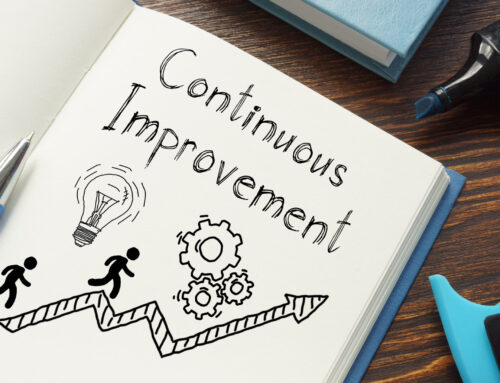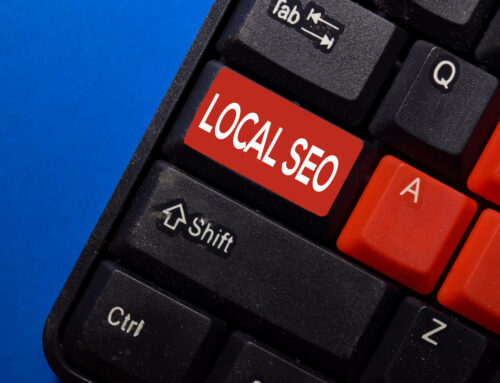 It's no secret that the Internet is one of the most valuable tools business owners can take advantage of. It's even possible to run an entire company from your smartphone.
It's no secret that the Internet is one of the most valuable tools business owners can take advantage of. It's even possible to run an entire company from your smartphone.
However, you won't get very far if people can't find your business website by themselves. That's where SEO comes in.
But, how can you measure SEO ROI? It's not always straightforward, but it's less complicated than you think.
Not sure where to start? Don't worry; we've got you covered. Let's take a look at everything you need to know.
What is SEO ROI?
As the name suggests, this metric refers to the return on investment you receive from your SEO strategies. Its value is defined by how much you spend and how much revenue you can generate.
Under the right circumstances, SEO is an investment that can provide one of the highest levels of ROI for businesses, and this is due to its efficacy and the low overhead costs.
But, SEO can be difficult to define financially due to its intangibility. Listed below is a set of steps you can follow to determine how cost-effective your strategy is.
How to Calculate the ROI of SEO
Before you can determine how much money your SEO efforts were responsible for generating, you'll need to analyze how each segment of your campaign performed. This includes everything from lead generation to the total cost of your SEO strategy.
ROI is crucial to monitor since grossing $100,000 in revenue from an SEO campaign won't mean much if you spent nearly that amount to achieve those results.
Fortunately, it's a relatively simple process to do so. Let's dive into what you need to know.
1. Lead Generation: How to Set up Conversion Tracking for Measuring SEO's ROI
Before you move forward, you'll need to ask yourself, ‘what is the value of a real estate lead?'
Simply put, this can be calculated with a straightforward formula: Average commission x Conversion rate = Lead value.
The average commission is self-explanatory— it's the average amount you'll make in commission from each lead. The conversion rate refers to the percentage of information you're able to close out of the total you encounter.
To help visualize this, let's assume that you focus on selling homes in upper-class neighborhoods, and each transaction nets you $60,000 in commission. If only 1 out of every 40 leads converts to a sale, your conversion rate is 2.5%.
So, the value of an average lead would be as follows: $60,000 x 2.5% = $1500
2. Sort Your Conversions by Channel
To better understand what SEO methods are the most valuable, you'll need to sort your conversions based on the channel with which they're associated. For example, a landing page may produce fewer conversions than a blog post during your campaign, which is information that you'll need to keep in mind to optimize future strategies.
So, it's essential to audit your performance and determine the total number of conversions from each channel. These often include:
- Email marketing
- Paid advertising
- Content marketing
- Social media
Then, you can sort them based on their overall level of performance.
3. Calculate Your SEO ROI
As with calculating the value of a lead, this can be accomplished with a relatively simple formula: Gain from Investment – Cost of Investment / Cost of Investment
So, if you spent $10,000 on your SEO campaign and gained $60,000 in revenue as a direct result, your formula would be as follows:
$60,000 – $10,000 / $10,000 = 500%
It's reasonably common for SEO campaigns to produce this size results as long as everything is finely-tuned.
How Does the ROI of SEO Compare to Paid Search ROI?
In general, SEO takes longer to produce results since you're relying on people finding your website organically through Google's search results.
In the meantime, Google Ads is an intelligent investment for businesses to focus on. At the same time, you ramp up your SEO efforts since you'll be able to get immediate results while laying the foundation for long-term progress.
If you happen to send clients to a landing page, paid search is also a viable option since there isn't much content on that page that you'd be able to use in your SEO strategy.
How Long Does It Take to See ROI From SEO?
Depending on the keywords you use, the overall search volume your niche has, etc., you may find that it takes anywhere from 3-6 months to gain momentum in this area. Although this may seem like a significant amount of time, the results you experience are likely to increase your overall revenue drastically.
So, you shouldn't worry if you do not see immediate results from your investment. This is especially true for owners of smaller businesses who may begin to stress over how long it's taking for their campaign to provide a return.
As long as you develop your SEO strategy with this factor in mind, you'll have no issue letting your campaign work on its own while you incorporate paid search methods to help pick up the slack in the meantime.
Measuring SEO ROI Can Seem Difficult
But it doesn't have to be.
With the above information about how you can accurately measure SEO ROI in mind, you'll be well on your way toward making the decision that's best for you and your company.
Want to learn more about how we can help? Feel free to contact us today to see what we can do.
Need more local marketing tips? Check out our entire Guide to Local Marketing for Real Estate Professionals





